Photos: Fundokwakhe Majozi, Oupa Bopape/Gallo Images via Getty Images; Courtesy of the artist; Jerritt Clark/Getty Images for UnitedMasters; Oupa Bopape/Gallo Images via Getty Images; Leon Bennett/WireImage
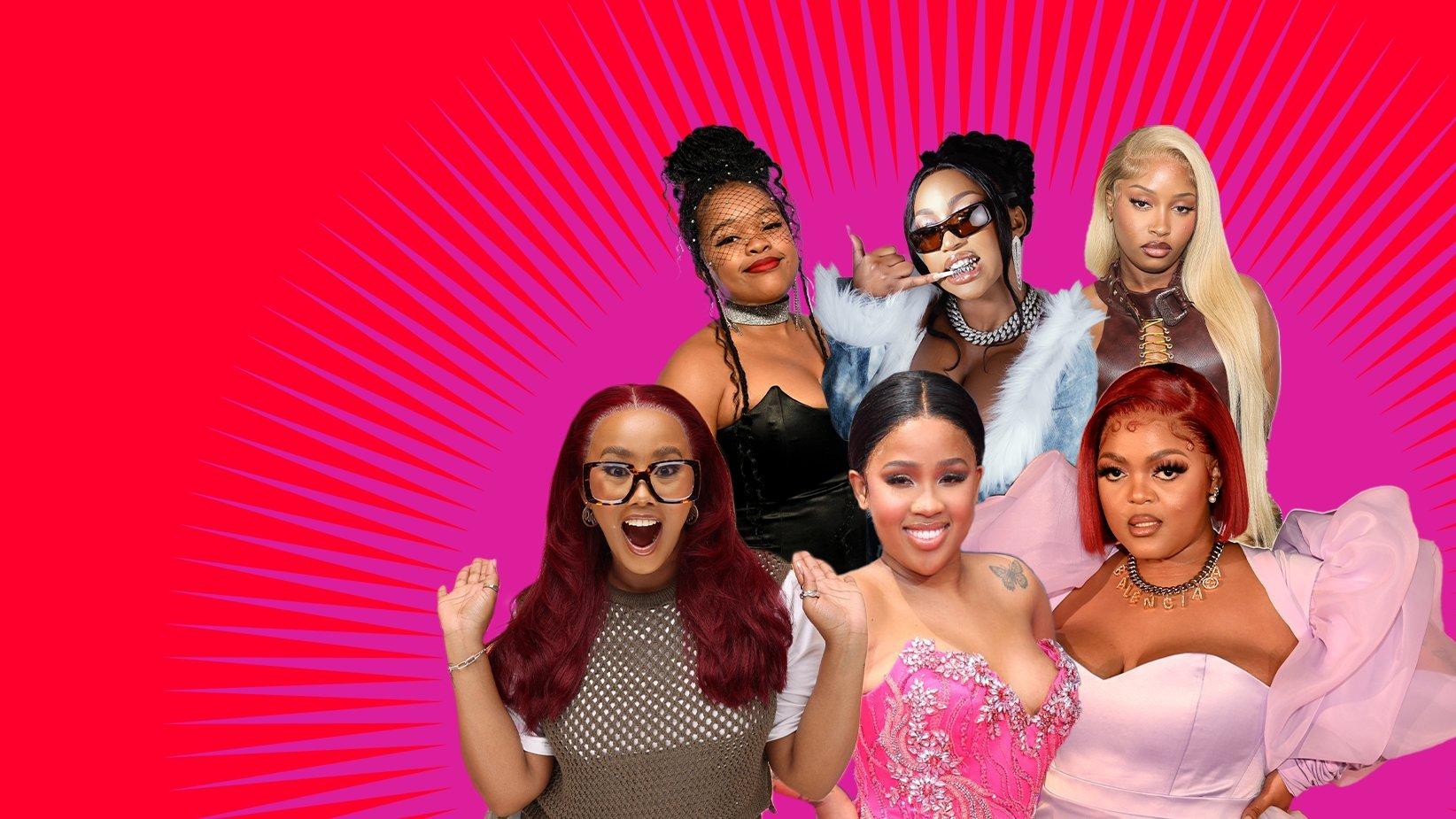
list
11 Women Pushing Amapiano To Global Heights: Uncle Waffles, Nkosazana Daughter, & More
While Tyla may have brought amapiano to 2024 GRAMMYs stage, a vast network of women are responsible for bringing the South African sound to the world. Get to know 11 of the artists at the forefront of amapiano music.
After South African singer Tyla won the inaugural golden gramophone for Best African Music Performance at the 2024 GRAMMYs award show, many likely wondered why her international breakout single "Water" garnered such global appeal.
Beyond the R&B sensibilities that made its sound approachable to Western audiences, what really drew crowds to "Water" was the vitality of South African dance and elements of amapiano — a subgenre of house and a child of kwaito, South Africa’s post-Apartheid freedom sound. Punctuated by amapiano’s log drums and insistent shakers, brought to life through the frantic backside movements of bacardi and Tyla’s aquatic theater, "Water" used genre fusion to carry South African sound across global airwaves.
What’s more, Tyla is part of a vast network of women propelling amapiano to the world. Zimbabwean singer Sha Sha’s breakout in 2019 created a monumental shift in a genre that was largely the terrain of boys and men, and since then the amapiano scene has seen many other women follow in her wake. The likes of Mawhoo, Ami Faku, Bontle Smith, and Nobantu Vilakazi consistently emphasize the genre's soulful heart through dreamlike vocal work, grounding the very hits that have made amapiano the widespread phenomenon that it is today.
Everything from the skillful improvisations of dancing schoolgirls, to lively performances from women DJs and vocalists has allowed amapiano’s essence to be communicated clearly to the world. A vast web of women are pushing the genre both within and beyond South African borders; read on for a list of 11 influential women who are key in elevating amapiano to global heights.
DBN Gogo
It’s not that controversial: everybody loves Gogo. Born in the city from which she derived her name, Durban, DBN Gogo has steadily become one of amapiano’s most sought-after acts. From her 2021 smash hit "Khuza Gogo" featuring amapiano stars such as the late Mpura, to later hits like "Possible," "Bambelela," and "Bells," Gogo has made a name for herself as a highly-dependable hitmaker and an equally compelling performer. It was her, of course, who created the viral dakiwe dance challenge, inspiring countless dance variations and solidifying her position as amapiano’s queen of cool.
Even while she has offered the genre mass mainstream appeal, DBN Gogo's personal projects reveal her lasting dedication to preserving amapiano’s authenticity. Her 2022 debut album, What’s Real, is a warm, rich body of work, while her newest EP Click Bait is a genre-diverse wonder that transcends the boundaries of ‘piano itself.
Since her breakout years ago, she has not even remotely backed down, taking over multiple AfroNation stages yearly, performing at Coachella in 2022, and featuring twice on the GRAMMY-nominated Black Panther: Wakanda Forever soundtrack. Dropping the Shakes & Les-assisted "Funk 55" in 2023, a track that is still dominating South African nightlife as we speak, Gogo is on an unending mission to take the world by storm.
Nkosazana Daughter
With a spiritual sound and an angelic voice to match, it’s safe to say that Nkosazana Daughter is amapiano’s sweetheart. Breaking out via an Instagram Live with DJ Maphorisa and Mpura during lockdown, the 23-year-old has proved that her ethereal vocals can impart a distinct sense of purity to any song she features on.
She has since voiced dreamy hit singles like "Dali Nguwe" and "Sofa Silahlane" with frequent collaborator Master KG, and worked with continental artists including Tanzania’s Harmonize and Nigerian Afropop stars Mr. Eazi, Omah Lay, and Young Jonn. Last year, she asserted herself in a big way, releasing her debut album Uthingo Le Nkosazana.
"Uthingo," meaning "rainbow" in Zulu, communicated to the world the vast color and love she had to bring to the scene. Nkosazana Daughter called amapiano’s greats to her world, working with the likes of Kabza de Small, Maphorisa, and Sir Trill throughout the project as well as Master KG on the lead single, "Amaphutha." She has already started the year with a bang via her successful hit "Keneilwe," proving her determination to come into 2024 with an unrelenting force.
TXC
Tarynn Reid and Clair Hefke are the dj duo that have proved the importance of intentional performance while pushing ‘piano. The pair are known for mixing amapiano party hits while clad in matching sets; Clair often holds down the fort while Tarynn drives crowds wild with impassioned dance moves.
The duo has become a symbol of amapiano’s global appeal, ruling the Piano People stage at AfroNation in Miami, closing Boiler Room’s Soulection stage in London, and taking on Qatar’s 2022 Fifa World Cup stage alongside acts like Lil Baby. What’s more, they have consistently shown dedication to growth, expanding their title from DJ duo to production duo, including producing their debut EP.
That release, 2022's A Fierce Piano is a rich collection of tracks featuring assists from some of the genre's smoothest vocalists: Daliwonga and Murumba Pitch. Following up with "Vuka Mawulele" and their latest single "Turn Off the Lights," TXC have shown that their future as creatives in amapiano is limitless.
Babalwa M
While the amapiano scene is fraught with disagreements surrounding origins, dates, and pioneers, all unanimously agree that Babalwa M is the queen of private school amapiano. Known for its deeply jazzy, soulful approach to amapiano, "private school" is a distinct subgenre that Babalwa’s vocals have refined throughout the years alongside its king, producer Kelvin Momo.
Listening to the transcendental vocals laced through tracks like "Aluta Continua" from her debut album of the same name, it should come as no surprise that Soweto’s own Babalwa M found her voice through the church choir.
Babalwa M's most infamous contributions to the private school archive come in the form of collaborations with the aforementioned Momo. Her near-spiritual vocals on tracks like "Feza," "Sukakude" and, most recently, "Amalobolo" from his newest project, have made even the most surface level consumers invested in the beauty of private school. Coming off of the heels of her most recent track "Maye Maye," Babalwa M is determined to continue sharing the sublimity of private school with the world.
Uncle Waffles
Nobody quite epitomizes amapiano’s globalization in the way that Uncle Waffles does.
It all boils down to one fateful day: a DJ booked for a 2021 club night in Soweto was unable to make their set, so Uncle Waffles was called in. She played Young Stunna’s "Adiwele," gyrating with incomparable cool as she responded to the crowd’s impassioned cries. A video of her dancing at this set went viral, generating a dance challenge that can still be seen at club nights today and converting her into an overnight sensation. Suddenly, Swaziland’s own Uncle Waffles was juggling bookings from all over the world.
Since then, the cosmos has become the limit — she has shut down Coachella, sold out US and UK headlines shows, and received cosigns from Drake, Kelly Rowland, and Ciara. Waffles' hit single "Tanzania" was even featured in an amapiano-influenced set during multiple stops of Beyoncé’s Renaissance Tour. What’s more, she has proved that her talents transcend the stage with three projects in her catalog: Red Dragon, and 2023’s Asylum and Solace.
With global hit singles "Yahyuppiyah" and "Peacock Revisit" from 2023, and her constant re-definition as a style icon, dancer, and creative director, Uncle Waffles continues to show the world that she cannot be confined to any one creative medium.
Chley
Slick-tongued Chley is widely understood as a secret weapon for any producer looking to cook up an amapiano anthem. Taking on music as recently as 2021, she’d already collaborated with prominent amapiano producers Mellow & Sleazy, Konke, and Musa Keys a year into her music career - voicing hits like "Kancane" and "M’nike." Chley was catapulted to a new level of fame once featured on Uncle Waffles’ "Yahyuppiyah," offering a rapid-fire verse that netizens all over the world fought hard to replicate.
Since then, she has featured on bangers such as "Vuma" with Felo Le Tee and Mellow & Sleazy, "Shu!" with Tanzania’s Diamond Platnumz, Gogo’s "Funk 55," and Ggoldie’s "Asambe." With a discography bound to make even the most conservative of listeners get up and dance, Chley is certainly one to watch in the midst of amapiano’s ever-evolving scene.
Kamo Mphela
Kamo Mphela burst onto the scene after one too many videos of her dancing went viral — an expected outcome for a girl who consistently danced and MCed at block parties on the streets of Joburg. Her rise to fame fatefully coincided with amapiano’s nationwide popularization, allowing the multi-talented dancer to latch on to the township sound and never let it go.
She soon jumped on tracks like "Sandton" alongside Kabza and Maphorisa in 2019 and "Amanikiniki" with Major League DJz in 2021, then released her own tracks "Percy Tau" and "Nkulunkulu" on her debut EP the same year. She’s since released smash hits, featured on the Wakanda Forever soundtrack, and offered a thrilling performance ahead of Davido at London’s O2 arena.
Throughout her career, Kamo Mphela has redefined the role of the dancer in amapiano’s landscape, not confining herself to the sidelines but instead positioning dance as a central component of any amapiano performance worth its salt. This radical ethic has allowed her to become widely regarded as one of amapino’s most notable performers, and she consistently ensures that her music embodies this weighty title. Her 2023 singles "HANNAH MONTANA" and "Dalie" came with expert dances — the latter with a viral dance challenge that has kept the song at a steady position on South African charts.
Boohle
Hailing from the Vosloorus township of Johannesburg, Buhle Manyathi is all about soul. Kicking off her career as part of a gospel troupe in 2016, she later transitioned to Afro house and amapiano, releasing a multi-genre debut album, Izibongo, in 2020 and EP Sfikile in 2021. It was only a matter of time before she became the vocalist behind some of ‘piano’s biggest hits, voicing "Mama" with Josiah de Disciple (and its gorgeous Afro house remix from De Capo), "Siyathandana" alongside rapper Cassper Nyovest, and the glorious "Ngixolele," produced by Busta 929.
Several top charting positions and awards later, she came out with arguably her most global single, "Hamba Wena" alongside Deep London. Igniting a global dance challenge created by South African steppers Hope Ramafalo and Hlongi Mash, "Hamba Wena" captivated the globe and reasserted Boohle’s seemingly endless ability to produce ‘piano anthems.
Lady Du
Music was always in the cards for Lady Du, but it was amapiano in particular that changed the scope of her career. Reared in a family of influential DJs and producers, she kicked off her career as a Hip-Hop DJ before pivoting completely into ‘piano.
Dropping both "Catalia" and "Woza" in 2021 — both with production from ‘piano pioneer Mr JazziQ — Lady Du suddenly had 2 gigantic hits under her belt, the latter becoming one of the biggest songs in the early days of amapiano’s globalization.
She has since offered roaring vocals on Busta and Mpura’s "Umsebenzi Wethu," hard-hitting rap on 9numba and TOSS’ "uMlando," and Mzansi flare on international features such as "I Did It" with Nigeria’s Niniola.
Lady Du reaffirmed her centrality in the scene in 2023, dropping her debut album Song is Queen and later, the Megadrumz-produced single "Tjina." The percussion-heavy tune quickly turned global club nights upside down, secured high positions on South Africa’s streaming charts, and emphasized Lady Du’s centrality in amapiano’s sprawling ecosystem.
Pabi Cooper
or Pritori princess Pabi Cooper, winning is easy. Hailing from South Africa’s administrative capital Pretoria, Pabi broke out as a 21-year-old with the party-starting "Isphithiphithi," a hit produced by Busta 929 in 2021.
2022's "Banyana Ke Bafana" was a widely popular hit, propelled by irresistible verses from the Pritori trifecta of Pabi, vocalist Ch’cco, and rapper Focalistic. Her debut EP, Cooperville, introduced audiences to a vast world of her making, with soulful numbers like "MAMA," alongside more street-centric jams like "Waga Bietjie" and "Angeke."
Today, Cooper has solidified herself as a symbol of youth power, mesmerizing South African crowds through her concert series Cooper FC and snagging a BET nomination in 2023 for Best New International Act. She also carries her hometown on her back wherever she goes; last year saw her release "Jukulyn" alongside Pretoria’s Jelly Babie, a track dedicated to a township of the same name and rooted in the city’s bouncy, infectious sound bacardi.
Khanyisa
Khanyisa may have started off her career as a social media influencer, but she has seamlessly evolved into an amapiano star. Performing covers and skits to the millions of followers she amassed on TikTok, Khanyisa wielded relatability and humor as her social media superpowers.
It wasn’t until her irresistible breakout "Bheka Mina Ngedwa" with Lady Du and her official debut "Ungangi Bambi" in 2021, both delivered with the same vitality that offered her acclaim online, that Khanyisa formally secured popularity within the amapiano space.
Since, Khanyisa has featured on popular tracks such as "Vuka Mawulele" with TxC and the danceable "Zula Zula" with Villosoul. In 2023, she proved her role as an undeniable hitmaker, releasing the log drum heavy "SUKA" and "NGIMOJA" with producer of the year Tyler ICU. With her successful pivot to musical fame, it is clear that Khanyisa’s future as a player in amapiano is incredibly bright.
10 Alté Artists To Know: Odunsi (The Engine), TeeZee, Lady Donli & More
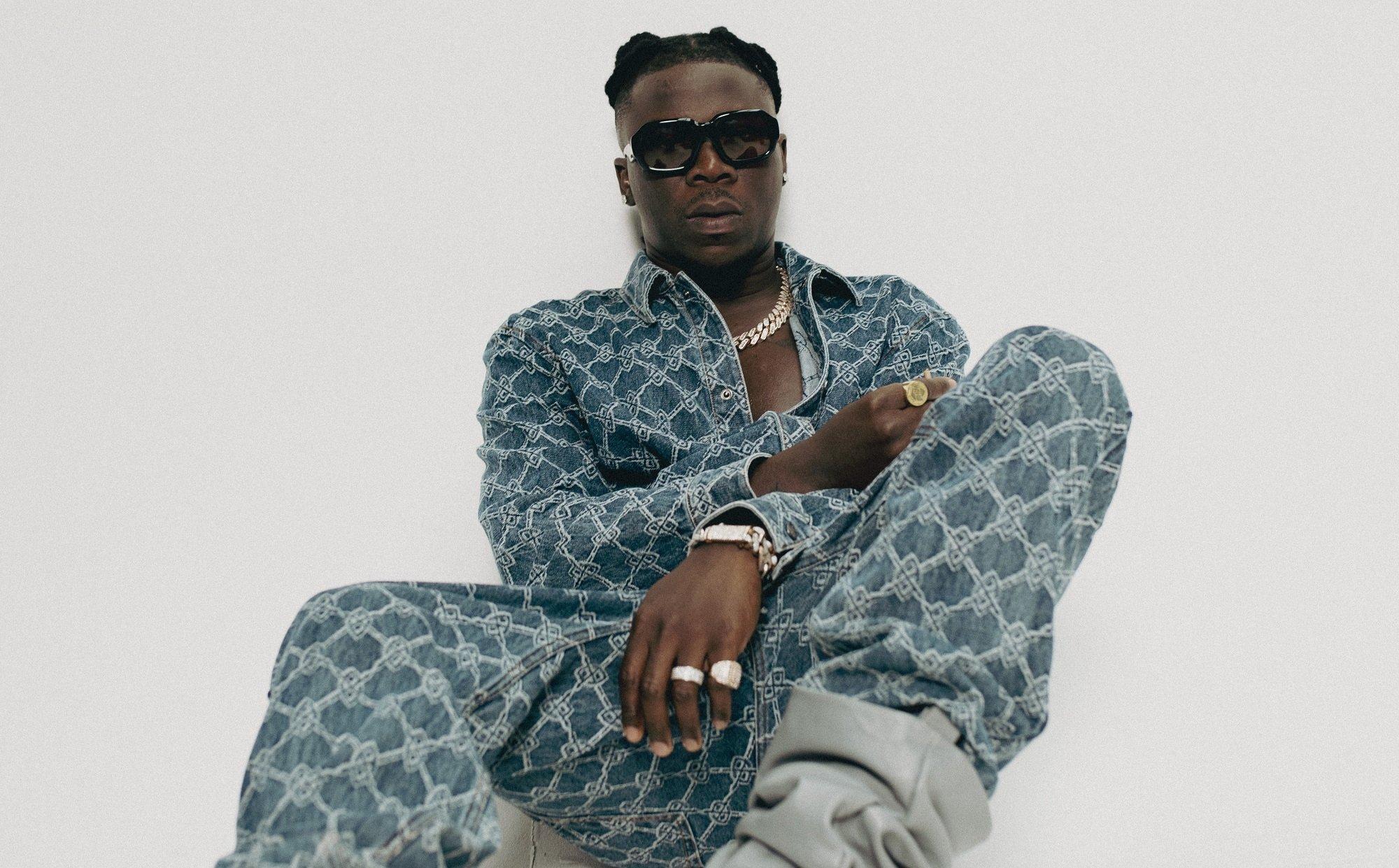
Photo: Ebenezer Ofori Donkor (Kay Studios) for Burniton Music Group
interview
Stonebwoy On His "Inner Quest" To Showcase Authentic Ghanaian Sound
"My vibration is well synced to music of Black origin," the Afro-dancehall artist says of his new album, 'UP & RUNNIN6.' "We are the custodians and we have to continue to bridge the gap by spreading the vibes."
Those perusing the history of Africa's entanglement with Jamaican sound can anticipate frequent mention of Stonebwoy's name. Throughout his career, the Ghanaian Afro-dancehall artist has connected sonic and cultural dots on a scale scarcely rivaled in Ghana’s music history.
Beginning with the release of his vibrant 2012 debut album Grade 1, Stonebwoy has meshed dancehall, reggae, Afropop, and hiplife with ease. Five studio albums, multiple collaborations and a growing number of accolades later, Stonebwoy is back with UP & RUNNIN6. Out Oct. 24, the album aims to turn back time, bringing audiences back to the "basics" of authentic Ghanaian and African sound.
"The nature and the mood of the album is going to give people authentic sounds from all the styles that I represent," the artist tells GRAMMY.com. "I just got drawn to selecting songs that give me that authentic feeling, and I realized that other people would love it too."
Stonebwoy's authenticity and lasting dedication to amplifying Africa through music has resonated with a global audience, as well as a number of major acts. His unmatched vitality has led to collaborations with fellow Afro-dancehall mainstays such as General Pype, Cynthia Morgan, and Patoranking, as well as Jamaican legends Beenie Man, Shaggy, and Sizzla. The release of Anloga Junction in 2020 marked a critical shift in Stonebwoy's career, projecting his story and signature sound to the world (while tying in international features such as Keri Hilson, Nasty C, Alicaì Harley, and Diamond Platnumz and Morgan Heritage). By 2023's The 5th Dimension, Stonebwoy was moving beyond his archetypal Afro-dancehall approach in favor of Afropop, amapiano, and Afro-R&B.
After much sonic exploration, UP & RUNNIN6 is a welcome return to roots that still feels as timely as ever. The album’s early singles reveal its vast range: "Pray for Me" is a reflective number featuring Wycelf Jean, while the buoyant "JEJEREJE" takes listeners to new heights.
GRAMMY.com spoke with Stonebwoy about connecting Africa and the Caribbean through music, Ghana’s #StopGalamseyNow protests, and the road to UP & RUNNIN6.
This interview has been edited for clarity.
Congrats on "JEJEREJE"! It’s been very well received both in Ghana and abroad. What tone did you want the track to set before the album officially drops?
I think the feeling has been that Ghanaians would love to hear some authentic Ghanaian style coupled up with today's sound. I realized that the people needed some nostalgic feeling, an authentic feeling. And we can use "JEJEREJE" as a very typical example of "African sound." This is what the world wants to listen to right now, especially Africans globally.
Tell us more about how you want to chanel authenticity through UP & RUNNIN6.
To cut a very long story short, this whole album is actually supposed to complement The 5th Dimension, which was more present and futuristic. UP & RUNNIN6 is also very present, but it taps into the original African sounds that a lot of people have been missing. I decided to tap into that energy to bring back some originality and remind us of the times before.
You’ve been in the game for over a decade now, and you’ve worked with a myriad of artists across five projects and countless singles. What do you want to convey with UP & RUNNIN6 that you feel you haven't yet shared with your audience?
I see life as a continuous process. From [my debut album in] 2012, there’s definitely going to be a build-up, so UP & RUNNIN6 is [a combination of] everything up till today. I’m still running with it. But I am making sure that I am creating music with a lot more reasoning in terms of satisfaction, and with an intense sankofa [a Twi word and phrase that connotes learning from the past to inform the future] kind of mentality.
For me, my vibration is well synced to music of Black origin. Therefore, I have the liberty to latch on to whatever vibration that is inspiring the world and inspiring me too. I merge both to stay true to my roots. That is what UP & RUNNIN6 is about for me.
Let’s talk about the feature selection on this album, because it seems very particular. In addition to the big names like Wyclef, Spice, and Duncan Mighty, you heavily represent rising talents from across the Caribbean and Africa such as Kaylan Arnold, Blvck H3ro, and Larruso. Were you intentional about platforming emerging voices on this project?
I’m just paying attention to an inner quest of moving in the UP & RUNNIN6 direction, without necessarily looking at the technicalities. I am moving with a vibrational understanding, but I'm just realizing now what meaning I'm making on a technical level.
I have two songs that have more than two features: "Geography" and "Overlord." These are the two songs that speak to my Caribbean Afro dance style, and they also open a platform for other people to get up and run.
I'm happy because Blvck H3ro just hit me up recently and said, "Yo bro, thanks for putting me on the album." I'm like, "Why not?" Kaylan is on the album too, and you know Chi Chi Ching has also been around for some time. But the variety and the uniqueness that they all carry is incredible.
A consistent thread throughout your project — and your entire career — has been your dedication to connecting Ghana and Africa with Jamaica and the Caribbean. How do you think African artists can use their platforms and their music to foster greater interconnectivity with the diaspora?
I think it's just by continuing what we’ve been doing already. I think Africa has always been very receptive of its people from the diaspora. I have been very intentional about it ever since I [learned] that there are other Black people spread across [the globe]. And as soon as I realized that they all must have a link, or must have come from Africa, I had a lot of interest in wanting to capture that wide range in my creativity.
That was a turning point for me, where I realized that I cannot be doing music while only considering Ghana or people on the African continent. I must capture the globe. My music is not only for Africans at home, but also for Africans abroad and in the diaspora. This has been my inspiration from the get-go. That's why I have always pushed the style that I do.
I'm grateful that I am well-accepted in the Jamaican and Caribbean society in terms of my representation of Black people globally. I think over the years, I've been able to develop my craft so that it appeals to the diaspora. That's one of the ways that I will continue to — and other artists can continue to — bridge the gap. We are the custodians and we have to continue to bridge the gap by spreading the vibes.
A significant part of your work also includes uplifting Africa and advocating for its liberation through music. As you’re well aware, there were recently protests in Ghana against galamsey, or illegal gold mining, a phenomenon which is progressively contaminating the country’s bodies of water. This is an issue you’ve spoken out against in the past with your 2021 single "Greedy Men." What is the role of the artist in advocating for the liberation of their fellow citizens?
Whatever happens in Ghana or Nigeria or Kenya or South Africa — so long as it's happening on the continent of Africa — Africans can relate. And so long as something is happening on the continent, then the world can relate.
Illegal mining is not the only big headache that is hitting Ghana, you know. And I believe that there are surely forms of illegal mining of different natural mineral resources across Africa. For instance, Congo has a lot going on in that regard as well, where foreign companies are killing people while they dig for minerals.
There is a tendency to underrate Ghana's contributions to contemporary African music as we tend to focus on the music scenes that are most validated by the West. But what are some key elements we’re missing about Ghana's role in the spread of African music and the development of its larger soundscape?
Ghana cannot be stripped of its contributions in the overall establishment of African sound and its globalization. Ghana can never be written off. Ghana will forever remain that very important contributor to the explosion, globalization, and the creation of African sound.
But Ghana has the responsibility of amplifying its own contributions. Because if you do not amplify your own contributions, you can't expect Nigeria to amplify Ghana's contributions as much as they amplify their own contributions. Who is actually going to invest their resources — be it human, be it capital — to amplify somebody else’s contributions? The only responsibility we owe each other is just a level of honesty.
A very critical example is today’s amapiano in Nigeria. Someone who doesn’t know wouldn’t be able to speak to the fact that it is amapiano that influenced the addition of certain elements in today’s Afrobeats.
Learn more: Amapiano's Decade-Long Journey To Global Dominance: The Sound Redefining Club Music Worldwide
That’s why I'm proud to go anywhere and mention Ghana. And to read and study and know that E.T. Mensah is the founding father of highlife music, these are the legendary bands, this is where they went to, and this is how big they were. The contributions that our forefathers and predecessors made are left in books to be read and in history journals to be dug out. Or else, someone will just say what they think, and that will become what we know today.
If you see African music as a building, don’t forget that the foundation must be strong for it to get to where it is today. In as much as the roofing can be seen clearly, you cannot easily see the foundation that is in the soil. So it is up to us to be honest enough. The guy that’s on the roof should say, "That’s my brother down there that's holding me up right now." We just have to be selfless enough and honest enough. I don’t think there’s too much wahala [trouble] in that regard.
Our differences should be the advantages that we have, rather than them becoming the weaknesses that we use against each other. So Ghana plays some of the most significant moments that have changed the landscape forever. That might not be sitting on top as the roof to be seen, but it is sitting right in the soil as a foundation to remain forever.
You’ve recently signed a new deal with Warner's ADA Worldwide. What are your hopes for the new partnership?
My target for this partnership is to continue to send my music across the globe the right way, through the right channels.
One of the things that we lack in our systems in Africa is monetization, and being able to gather all the necessary valuables that come with music as a commercial commodity. I think it's important to partner with certain institutions that are very well established globally to be able to see the end results of our music. And also, to propel our artistry to the next level.
Watch Stonebwoy Rise To The Top In This Bold Performance Of "Manodzi" | Global Spin
It goes without saying you’re incredibly accomplished. Over the past decade, you’ve indelibly shaped Ghanaian and African music. How would you summarize the legacy that you’ve left, and what do you look towards for the future?
While you are running the race, you know that you have to hit the end mark, but it is only after you hit it that you can sit back and analyze how your race went. Using that as a scenario, I trust that there's more mileage for me to hit. But so far, so great. There's a lot that has gone on, that is going on, and I'm grateful for that.
It just gives me energy to keep going because I do not feel that I have finished. There are things that can still be done, in terms of shows, still taking over, still pushing the numbers.
For the future, I see myself having an established system that can continue to harness and develop more musicians, equipping them with access that they didn’t have before. The best example I can use is Jay-Z — who’s an artist and an entrepreneur and is still very active.
We have to build back a better system in order to continue to produce musicians. This is what I see on a large scale when it comes to the music aspect of my life.
More News About African Music
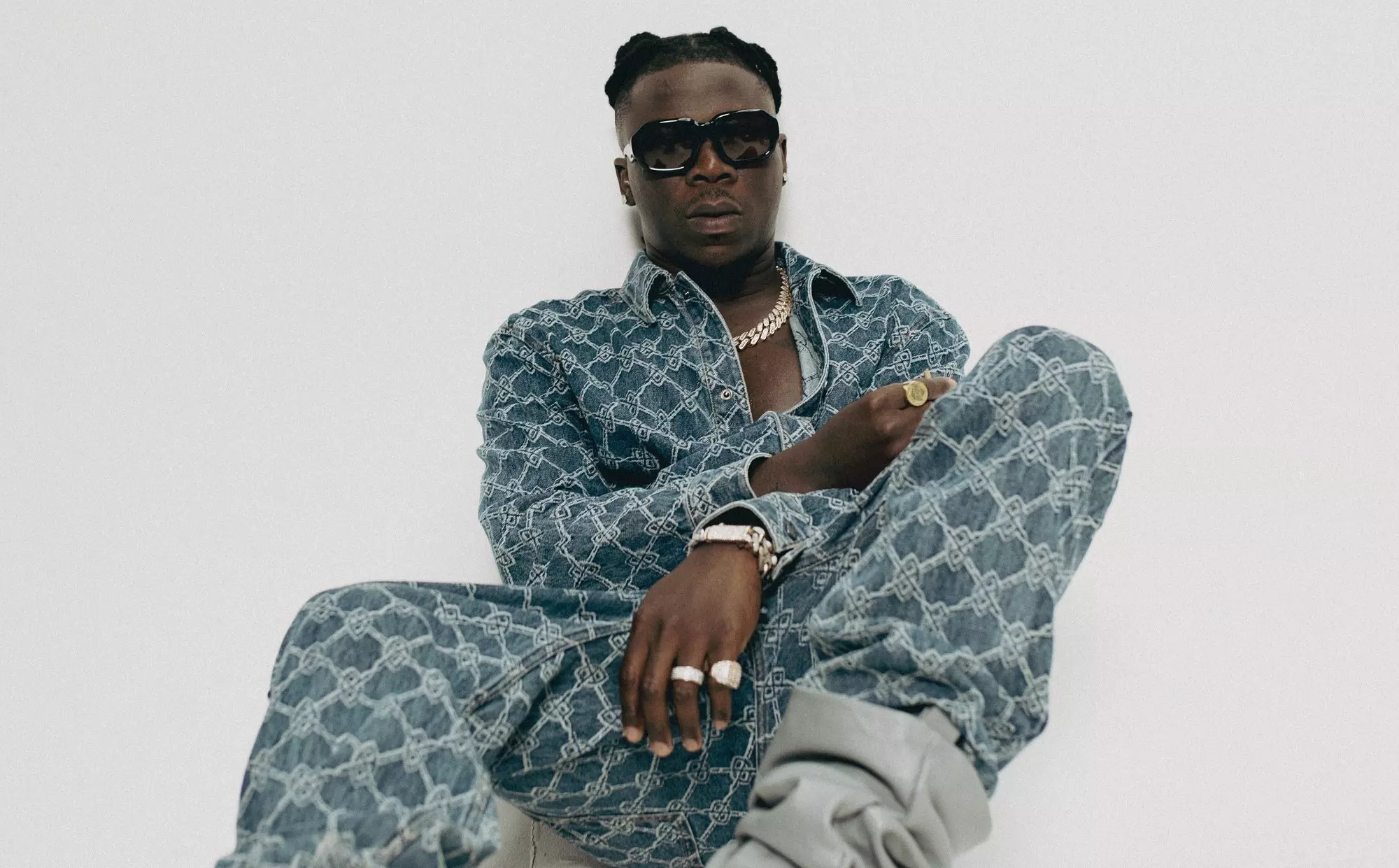
Stonebwoy On His "Inner Quest" To Showcase Authentic Ghanaian Sound

Mic Monsta Performs "Local Lokito" | Global Spin
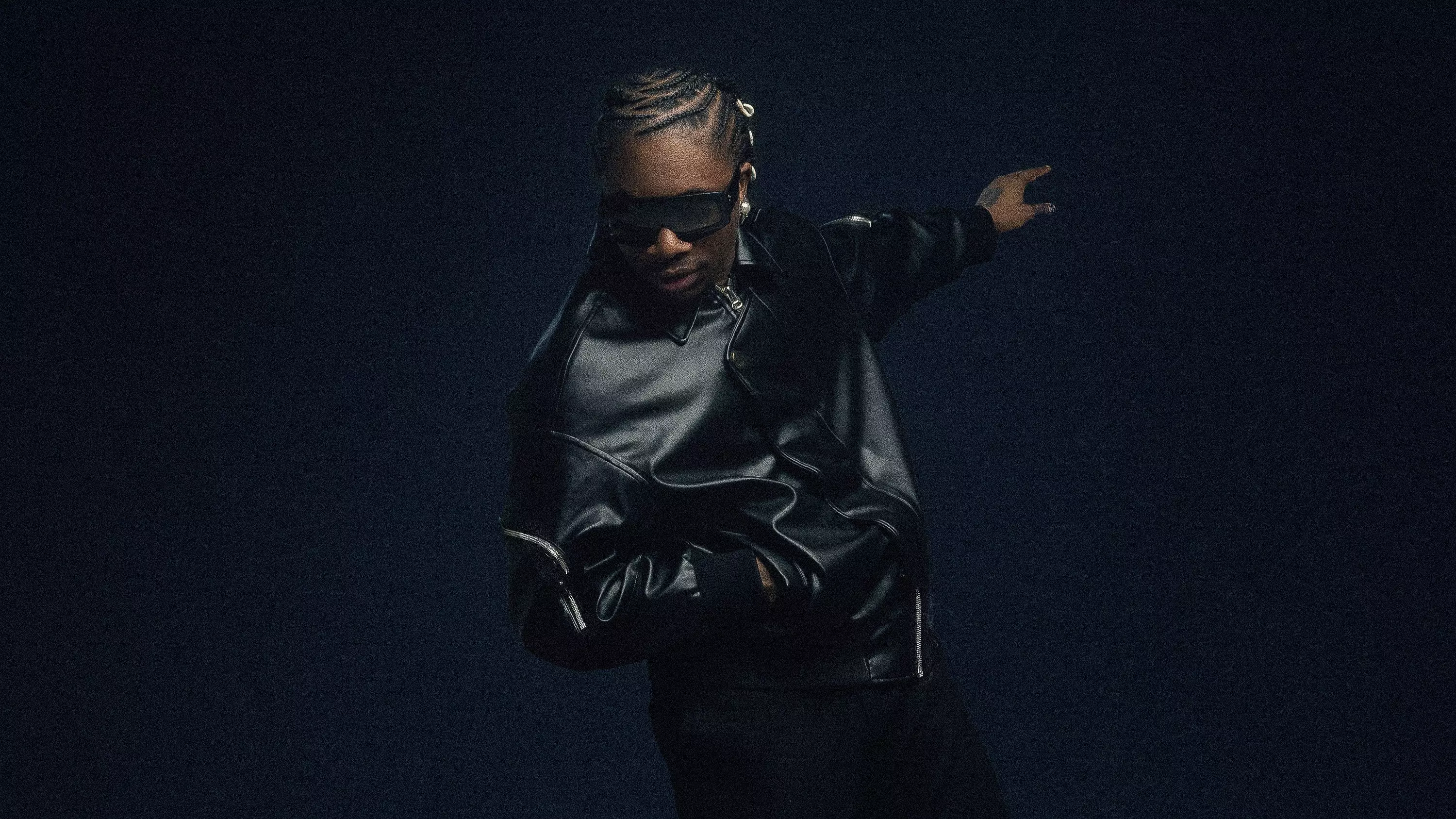
Rising Afrobeats Star Oxlade Is Ready To Go Global On 'Oxlade From Africa'
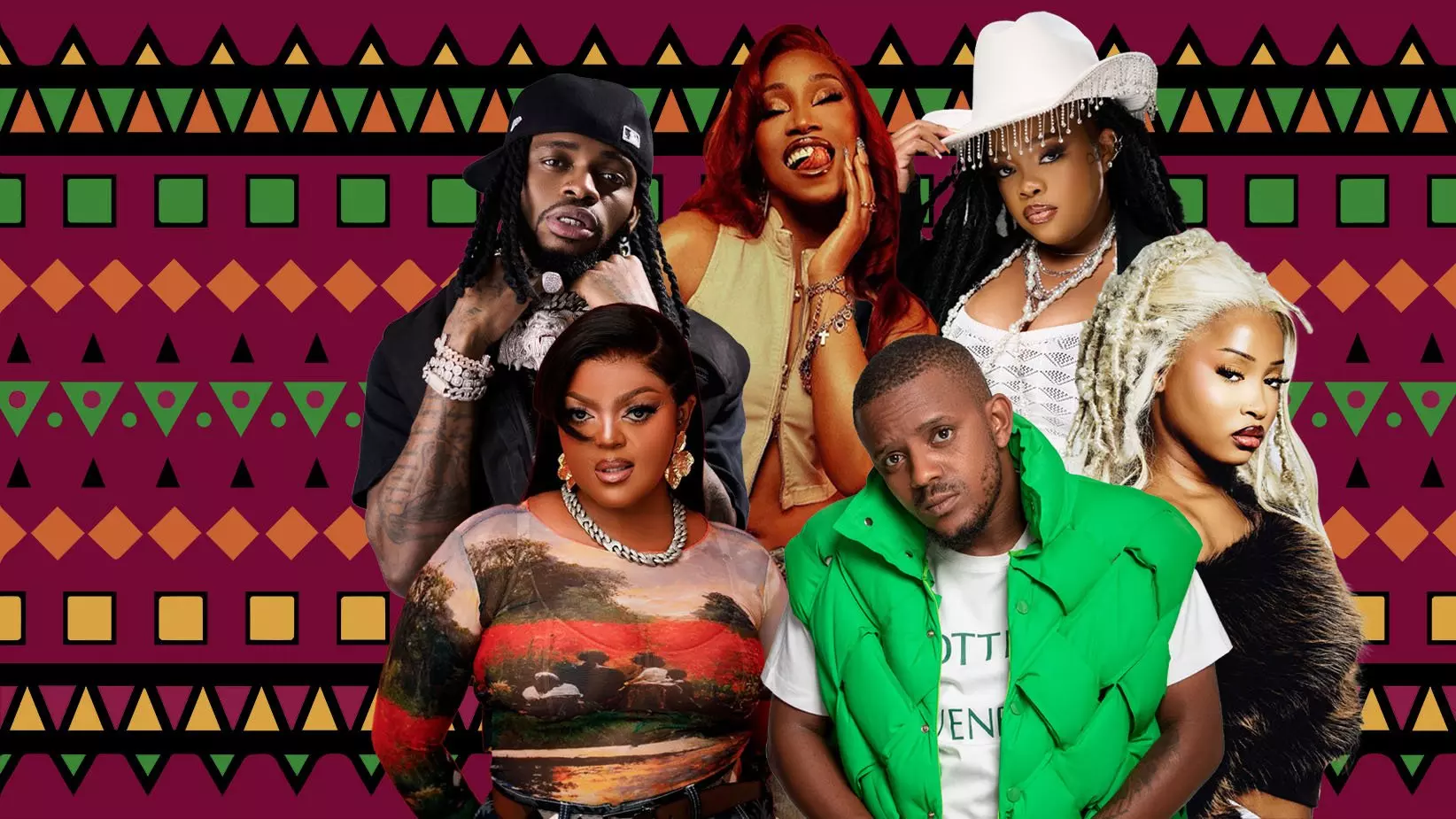
Amapiano's Decade-Long Journey To Global Dominance: The Sound Redefining Club Music Worldwide
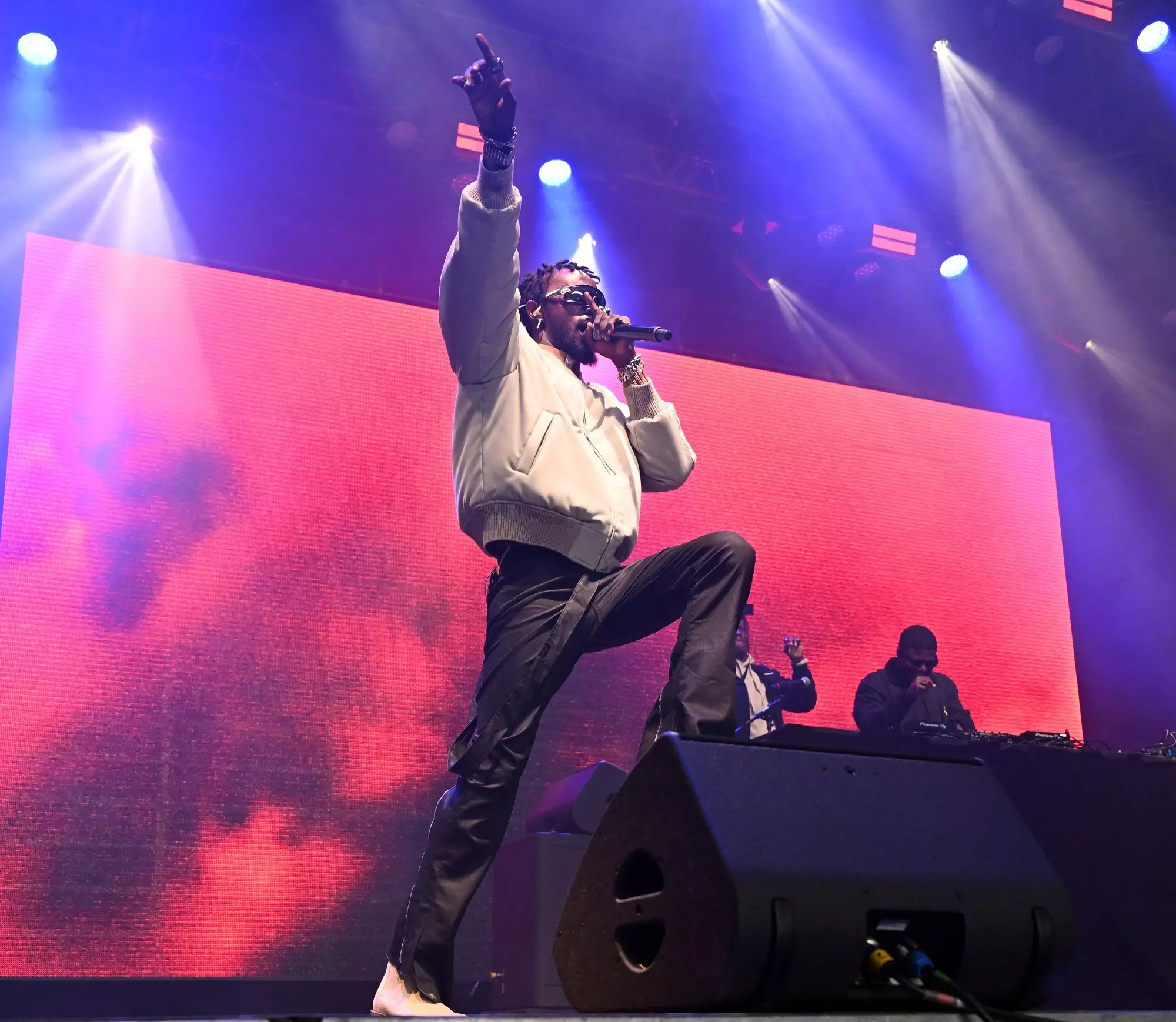
10 Artists Essential To Ghanaian Hiplife: Reggie Rockstone, Sarkodie, Mzbel & More
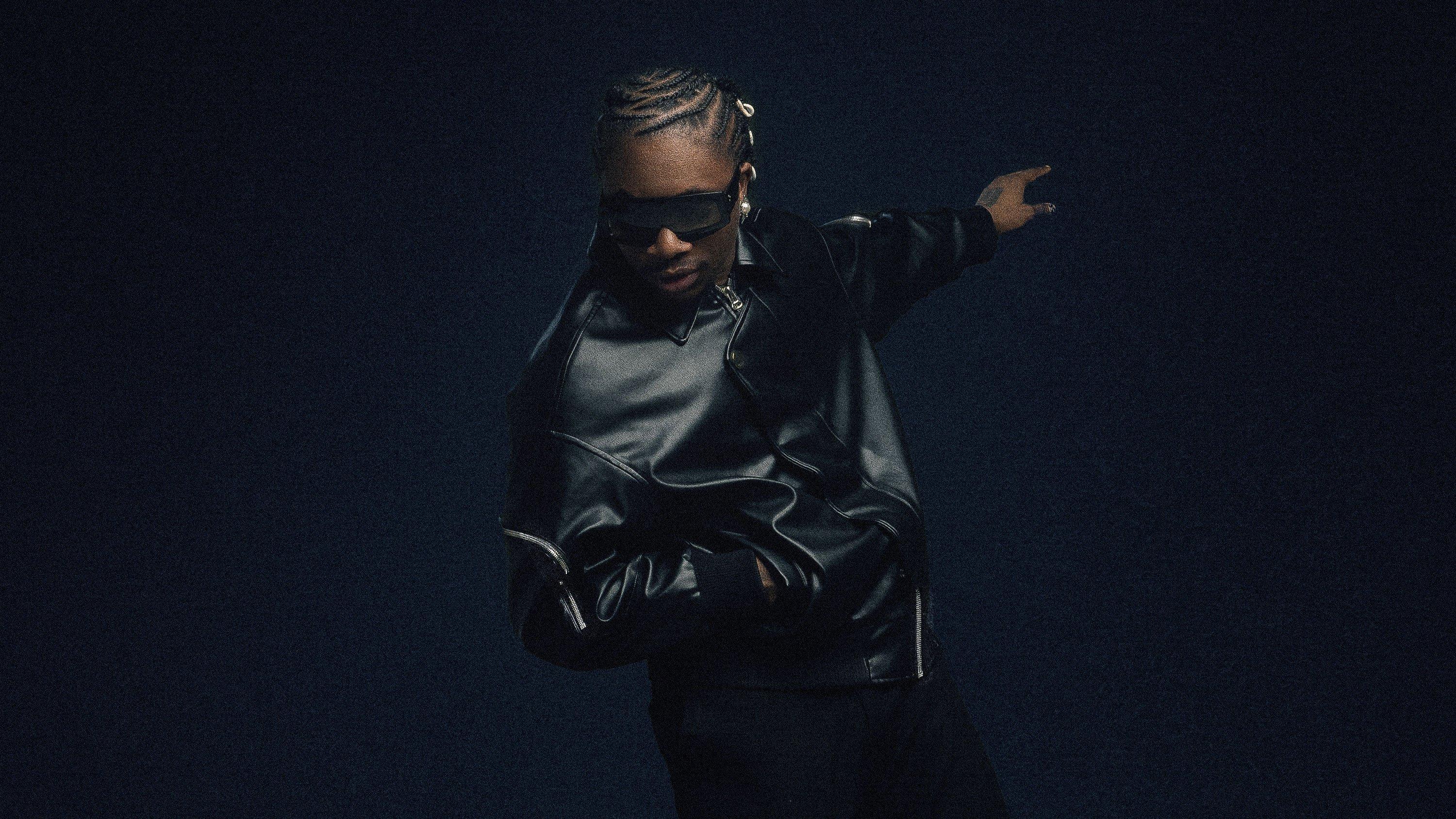
Photo: Courtesy of the artist
interview
Rising Afrobeats Star Oxlade Is Ready To Go Global On 'Oxlade From Africa'
The Nigerian singer discusses his new project, his global ambitions, and the unity of Afrobeats as an identity.
If there’s one thing Nigerian singer Oxlade believes in, it’s the power of Afrobeats as a world-conquering musical movement.
“Afrobeat is beyond the music. Afrobeats is who we are,” he says. “Afrobeats is the trends, the fashion, what we eat. Afrobeats is an identity.”
The Lagos native, born Ikuforiji Olaitan Abdulrahman, has good reason to believe in Afrobeats, considering he’s one of its fastest-rising stars. After a youth marked by tragedy and struggle, in particular the death of his mother at 3 years old, he left university to pursue a musical career in the late 2010s.
Oxlade quickly rose to prominence when his strong falsetto vocals earned him cosigns from Drake and opening performance slots for Davido and WizKid. His EP Oxygene, inspired by his own struggles with asthma, gained acclaim with the smash hit “Away” in 2020. An even bigger success followed with “Ku Lo Sa” in 2022; his performance of the song on A Colors Show, the influential YouTube series where artists give one-take live renditions of their music, currently has over 100 million views.
Now, Oxlade is readying his biggest act yet. He dropped his debut album Oxlade From Africa on September 20 ahead of a North American tour starting October 2 in Winnipeg. The album’s vision of what Afrobeats can be is quite inclusive, with the artist bringing aboard UK rapper Dave, French-speaking Congolese star Fally Ipupa, and Jamaican dancehall icon Popcaan as collaborators. Ugandan music legend turned political dissident Bobi Wine provides a spirited introduction on the album’s opening track.
GRAMMY.com caught up with Oxlade via Zoom ahead of the album’s release to talk about the creative process behind the record, his global ambitions, and how Afrobeats serves as a cultural force on the world stage.
How long have you been making music and when did you decide to start doing it professionally?
I started singing even before I started to talk. So it's more like a muscle memory thing for me. I was born into a musical family. I lost my mom when I was three, and I moved to my grandma's. My grandma happened to be a deaconess in a church, and she enrolled me in the choir. Ever since then, I've been singing. It has always been a part of me, even though I never knew I was gonna use it to impact lives. Even though I never knew I was gonna be Oxlade, I started singing even before I found myself.
Judging by the Barcelona FC jacket you’re wearing, you're clearly a football fan. Do you support any specific teams or players?
I'm a Barca fan. My favorite football player of all time is Neymar. He made me love football again. His game is artistic, not the normal athletic, direct style.
Before I knew the origin of your artist name, I originally thought that you had named yourself after (former Liverpool player) Alexander Oxlade Chamberlain.
Yeah, I get that a lot. Actually, I got it from my grandpa. He lost his best friend the same day I was born, and so he gave me the name in his honor.
**The album is called Oxlade from Africa. Why is it from Africa, not from Nigeria or from Lagos?**
As much of a Nigerian that I am, I'm equally an African. And Africa is the mother continent of every African country and race, including the likes of Jamaica and most of the Black people you see anywhere on Earth. So I felt like self awareness and identity is one of the most underrated strengths that any African has. I'm on the path of finding myself, but also I'm on the quest of telling people more about myself and where I come from through my music.
Something I encounter a lot when speaking with Afrobeats artists is the idea of Pan Africanism, this desire to sort of unite the whole continent through sound. And it seems like you want to unite sort of everyone of any Black experience.
I feel like we need more unity in Africa. God really blessed our race. And I feel the only missing piece is more love. If we let go of xenophobia, tribalism and personal greed, I feel like Africa could be the most blessed, flourishing continent to ever exist.
Is that why you wanted to work with someone like Bobi Wine, who has become a political leader in his country?
Yeah. I mean, it was just a way to remind the African youth that even though we are artists, we're vessels, and we are also destined to use our platforms and our voices to wake people up. The future is now, the future is tomorrow, the future has to start from now, and having Bobi Wine on there was just like a trigger to remind people of what the struggle of being an African youth feels like, and against all odds, how much we have to triumph. Because when our parents, or when the people that came before us are gone, we're going to be the ones that have to handle the fate of Africa.
Was there a particular moment earlier on in your career where you realized you wanted to become a musician full time? What was that moment like?
I just knew I was never going to work a nine to five (laughs). Like, in as much as I could work for someone, I want to work on my own terms. I want to work while creating my own future, my own art. I didn't know I was going to be this big or go this deep into music, but I knew I was going to be a star. I started off as a dancer, and then I started acting, and then music just came along. Music had always been there, but I really didn't know what exact talent I was going to use to actually push my stardom. But I feel like music eventually won, because I think that's the most natural thing that comes to me.
Is there a co-sign from another artist, or anyone really, that excited you more than anything other? Who's the most important supporter?
Every single human being that streams my music is my biggest co-sign. I would say Drake, but I mean, a woman somewhere in Congo taking out her hard earned money to stream my music is my biggest supporter, or the woman somewhere in the South of France using my songs to serenade her husband for their wedding anniversary. I feel like every single person that ever invested in my music should be regarded as my biggest co-sign ever.
What’s the biggest career milestone of yours so far? What is something that you are really proud to have accomplished
My biggest career milestone is the fact that I never stopped, that I'm still here, that I'm still trying to achieve my goals, regardless of all the obstacles, regardless of where I come from. Trust me, being a Nigerian alone is an obstacle, because we’re making it against all odds. We're doing this in hardship, in poverty, and we're still excelling. So being able to achieve my dream alone is my biggest milestone.
Were there any particular obstacles in the making of this album that you had to surpass?
Obstacles have to happen for you to value every success that you achieve, so from the paperwork down to me having to go re-record the entire album in London, down to selection problems, down to me having to let go of some personal, sentimental songs that didn’t fit the theme of the album, down to having sleepless nights, always having to push the album date, thousands of Zoom meetings – it's a long list. That's why I'm so grateful that this album exists.
What would you say the theme of the album is overall?
Royalty, African excellence, and Black is the new cool. Being Black is a flex. Afrobeat is beyond the music. Afrobeats is who we are. Afrobeats is a Twitter banter. Afrobeats is the trends, the fashion, what we eat. Afrobeats is an identity. So I understand when people try to carve a niche for themselves, but what I don't like is when it’s at the expense of Afrobeats, discrediting what we're fighting for, which is an identity. You wouldn't see Kendrick Lamar, no matter how many triple or quadruple entendres he might put on a record, try to downplay hip hop, because that's the identity they're trying to represent. So I feel like this album is just an embodiment of all of that, authenticity, originality.
**In terms of what you put into the lyrical content or the sound of the album, how do you think that identity manifests on Oxlade from Africa?**
I sang about my struggle. I sang about love, I sang about gratitude. I sang about prophesying greatness into one's life. Everything I am in real life was transferred into melodies, and that is why I feel like that is authentic enough to be labeled Oxlade from Africa and an African album, because I'm African, and I'm literally singing my experiences into music.
And those personal songs that you had to leave off, why exactly weren’t they right for this project? And are you going to try and put them out at some point?
Definitely, they're gonna fit into the project they were made for. Some of them were probably extremely pop records, and they defied the theme and sound that I was trying to create for this album. Some of them could be techno music. Some of them could be different types of genres that didn't fit the theme of the album, not because the songs were not good enough. So definitely, those songs are gonna find an album that benefits them.
Who would you love to collaborate with the most?
Dead or alive? Michael Jackson is a no brainer, because I feel like he's the greatest to ever do it. He made Black boys mainstream. I don't know if you understand what that means, like he’s the first Black pop artist to be televised on MTV. You know, all those types of milestones made boys like us, at home in Africa, believe that anything is possible. Another person I would like to work with is probably Drake. Him, Kendrick, Lauryn Hill, and the list goes on and on. There's Chronixx from Jamaica. I just love spiritual, ethereal musicians
What's one thing that people might not know about you?
I'm asthmatic. People don't know that. That's why I dropped my first ever project, an EP called Oxygene. People didn't realize it was me raising awareness for asthma patients around the world, to tell them they’re not alone and that music would be the air you need to heal you from asthma. I'm also a cat guy, I have two cats.
Does your asthma ever give you difficulties when performing?
Oddly enough it never has. I feel like the pressure and the intensity that comes with climbing the stage turns all sickness into hype. Like you're about to get onstage, nothing is messing you.
More News About African Music

Stonebwoy On His "Inner Quest" To Showcase Authentic Ghanaian Sound

Mic Monsta Performs "Local Lokito" | Global Spin

Rising Afrobeats Star Oxlade Is Ready To Go Global On 'Oxlade From Africa'

Amapiano's Decade-Long Journey To Global Dominance: The Sound Redefining Club Music Worldwide

10 Artists Essential To Ghanaian Hiplife: Reggie Rockstone, Sarkodie, Mzbel & More
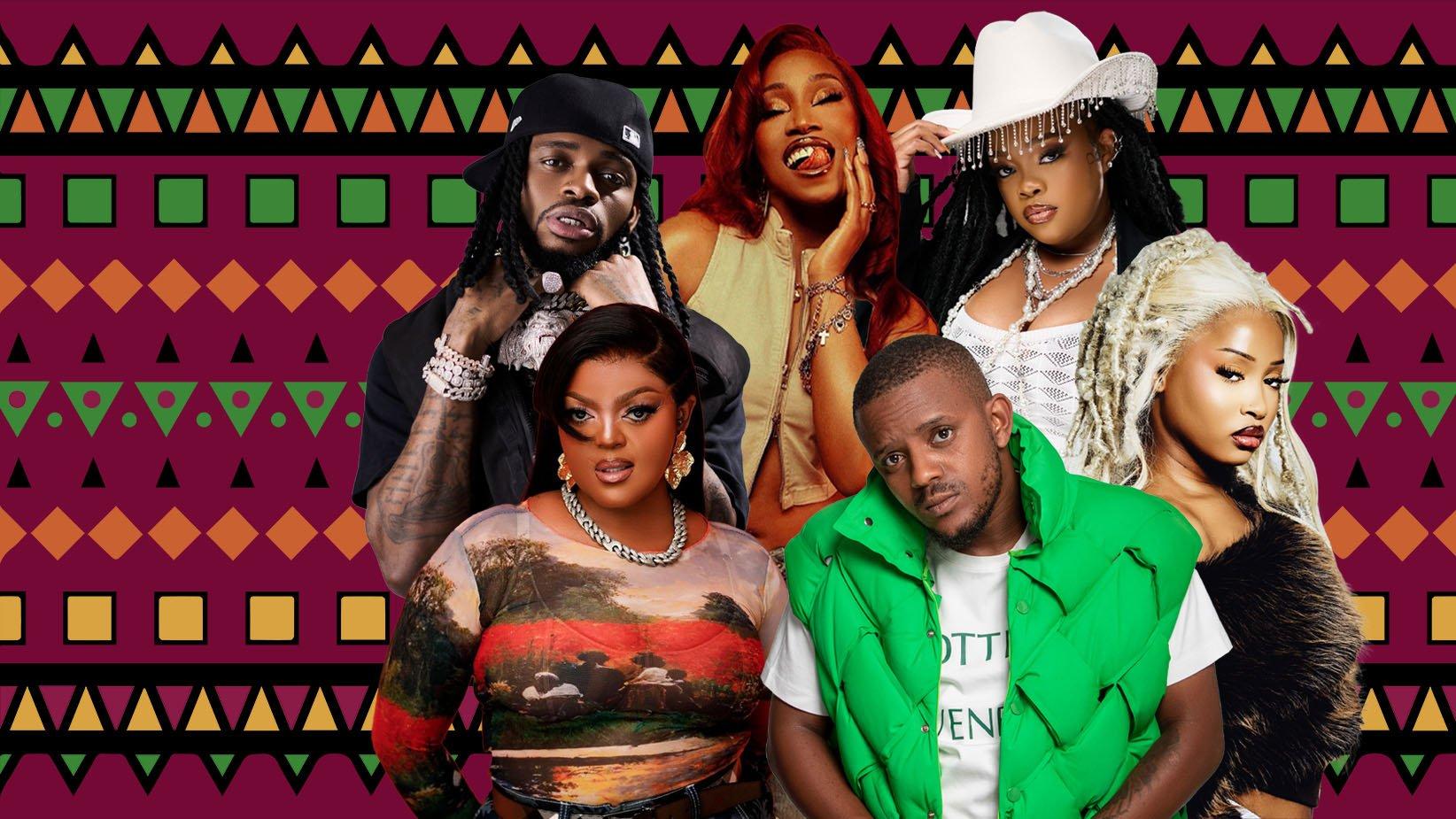
Photos: Blaq; Jibril Jallow; Malwandla Rikhotso; Mishaal Gangaram; Malwandla Rikhotso; Minenhle Nene
feature
Amapiano's Decade-Long Journey To Global Dominance: The Sound Redefining Club Music Worldwide
Amapiano may have started in the townships of South Africa, but it didn’t stay there. Amapiano artists Kabza De Small, Uncle Waffles, DBN Gogo, and others detail how the genre went from the underground to the GRAMMY stage and beyond.
At nightclubs in Tokyo, New York and beyond, pulsing through the speakers at major European music festivals, and even in Hollywood blockbusters, one sound has been steadily taking over: amapiano.
The South African genre, with a blend of deep house, jazz, lounge and local musical styles, has captivated the world, generating billions of views on social media and sparking a cultural phenomenon that shows no signs of slowing down. On TikTok alone, the #Amapiano hashtag has amassed over 10 billion views, a testament to its global reach and popularity.
Characterized by velvety, hypnotic grooves, piano melodies, deep basslines, and smooth percussive rhythms, amapiano was born in the townships of Gauteng Province — particularly in cities like Pretoria and Johannesburg — in the mid-2010s. Slower than the average club track, amapiano songs often live between 110 and 120 bpm. The genre's rise to global dominance is a testament to the power of grassroots creativity and digital connectivity.
Fast-forward to February 2024, and South African singer Tyla took home the inaugural golden gramophone for Best African Music Performance at the 2024 GRAMMYs. Beyond Music's Biggest Night, Tyla's amapiano-infused Afropop hit "Water" topped the Billboard U.S. Afrobeats Songs and Hip-Hop/R&B charts, and became the first African song to enter the Billboard Hot 100 since 1968. The "Water" dance challenge on TikTok — created by Tyla’s choreographer, Litchi — also widely pushed the song.
Tyla isn't alone in pushing the genre's popularity. Interest in amapiano has been propelled by social media and streaming platforms. According to Spotify data, the genre garnered its first 100 million streams in 2020; by mid-2024 the platform reported 855 million streams of amapiano songs. Between 2014 and 2024, there has been a 153 percent growth in international exposure to the genre.
While Tyla’s win at the GRAMMYs and in wider culture affirms the genre’s solid footing in the global music scene, amapiano’s popularity is the result of a decade-long journey.
The Birth Of A Movement
While the birth of amapiano is generally pegged to 2014, there’s no specific event or single person that can be credited with its uprising. Amapiano's origins were humble but innovative, distinguished by its inclusivity and collaboration — factors that are likely the result of the fluidity with which the genre emerged.
Young, aspiring producers in South African townships used affordable personal computers and free music production software to blend globally-influenced sounds such as deep house and jazz with kwaito — a distinctly South African genre. True to the collaborative nature of the genre's origins, an amapiano song can have six to 10 collaborators (sometimes more); the result is a blend of carefully curated voices, notes, and themes that captivates listeners far beyond its birthplace.
Kabza De Small began his career in 2009 and broke through on the continent with his 2016 album Avenue Sounds. Today, he's hailed as the "King of Amapiano" by media, fans and industry peers. "Amapiano is considered a raw, rough sound. To see people globally dancing and participating in TikTok challenges is thrilling," he tells GRAMMY.com, reflecting on amapiano's unique sound and present-day virality.
This rawness is largely reflected in the genre’s production, which often strips down tracks to their bare essentials. Repetitive beats and bass often contribute to amapiano's "rough" aspect, making it feel more direct and visceral. Soulful melodies float over that heavy bass and percussion, and catchy vocal hooks balance the raw beats underneath.
Amapiano’s collaborative nature has been crucial to its development. Kabza De Small shouts out pioneering producer, singer and songwriter, Mdu aka TRP. "Not a lot of people know that he basically founded the log drum sound that is so essential and distinct" to amapiano, De Small says. In amapiano, the "log drum" isn't an actual instrument but a distinct, synthesized bass sound that captures the deep, resonant tones of a traditional log drum. This signature sound has become a cornerstone of amapiano's unique and captivating vibe.
From Local Phenomenon To National Breakthrough
Cultural authenticity has been a key factor in the sound's appeal. It's not just a genre of music, but a representation of South African identity and expression. The name itself came from the Zulu language, which is the word for "pianos."
By 2016, amapiano was still finding its ground, with local DJs and producers refining its signature elements.
Learn more: 11 Women Pushing Amapiano To Global Heights: Uncle Waffles, Nkosazana Daughter, & More
A significant milestone was achieved in 2017 when De Mogul SA's "Oe Batla Kae" became one of the first amapiano tracks to achieve commercial success. The tune got the artist booked for local shows, effectively paving the way for other amapiano songs. In 2018, "Umshove" by Kabza De Small feat. Leehleza showcased a more refined amapiano sound, highlighting elements that "Oe Batla Kae" lacked — particularly the log drum.
2019 was a defining year for amapiano, as songs like "Labantwana Ama Uber" by Semi Tee (feat. Kammu Dee and Miano), "Vula Vala" by DJ Maphorisa and Kabza De Small (feat. Nokwazi and Vigro Deep), and "Kokota Piano" by Kaygee Daking and Bizizi further left the underground. Amapiano could be heard on television and radio, in clubs, and across social media, effectively making the above songs anthems throughout South Africa.
As the sound began to spread nationally, it carried with it the stories, language, and rhythms of its birthplace, creating a strong connection with listeners across the country.
The Global Takeover
As the world grappled with COVID-related lockdowns in 2020 and 2021, danceable amapiano songs such as DBN Gogo and Musa Keys' "Possible," Focalistic's "Ke Star" feat. Vigro Deep, and "Emcimbini" by Kabza De Small and others provided a much-needed escape. With more time spent online during the pandemic, the genre was simultaneously making its way into social media globally, with a variety of TikTok dance challenges bringing additional listeners to the genre.
International collaborations further catapulted amapiano onto the world stage. In 2022, Nigerian crooner CKay collaborated with Davido and Focalistic on "Watawi", a notably huge Afropiano song. On YouTube, the songs performed quite well, with "Woza" by South African artists Mr JazziQ, Kabza De Small and Lady Du featuring Boohle hitting 21 million views. "Mang’Dakiwe" by DJ Obza featuring Leon Lee hit 17 million views. The remix, done in collaboration with Tanzanian bongo artist Harmonize garnered 29 million views.
By 2023, the amapiano sound was now mature and definitive, with all of its key elements together. Over the next few years, amapiano sounds would be incorporated with genres from other countries to great effect.
Zimbabwean amapiano vocalist Sha Sha's "Tender Love" feat. DJ Maphorisa and Kabza De Small garnered more than 15 million views on YouTube. The popular release showcased her impeccable vocal range and denoted that amapiano was now being done by artists beyond South Africa. For her efforts, Sha Sha took home the Viewer’s Choice Best New International Act award at the 2020 BET Awards. Her win on an international platform signaled amapiano's arrival on the global music scene and opened doors for more artists to gain international exposure.
Simultaneously, awards for and documentation of amapiano within South Africa pushed the movement even further. In 2021, the South Africa Amapiano Music Awards were launched and exclusively dedicated to the genre. The inaugural Best Amapiano Album Of The Year Award was given to De Mthuda for Ace of Spades.
Uncle Waffles, whose electrifying DJ sets have made her a symbol of the genre's youthful exuberance, marvels at this global embrace. "It's amazing to see the world embrace a new sound," she tells GRAMMY.com. "Seeing people dancing and singing to the songs never fails to stun me."
Amapiano artists including Uncle Waffles, DBN Gogo, and Major League Djz have performed on a variety of global stages, from AfroNation's Portugal and Miami events to Coachella and London's O2 Arena. Tyla has performed at the BET Awards, the 2024 Olympics and the Cannes Lions Festival 2024.
Encouraging Cross-Cultural Collaborations
Amapiano has become a cultural ambassador, allowing artists in the diaspora to connect with their roots while introducing the sound to new audiences.
Amapiano singer Nqobilé Danseur, who grew up in South Africa before moving to the UK at age 12, tells GRAMMY.com that "amapiano is deeply personal to me as it embodies my South African heritage and journey. Growing up in South Africa, kwaito was the soundtrack to our lives."
The genre's authentic DNA has allowed artists to explore new territories, both geographically and creatively. Nqobilé recounted her 2022 single "Shake" featuring Xavier being played during a carnival party in New York, and how the crowd's engagement reflected amapiano's ability to transcend cultural and physical boundaries.
Singer/songwriter Boohle, who transitioned from gospel and Afropop to amapiano, has toured Dubai, Amsterdam, and many African countries. "Seeing cultures and backgrounds unite over the music we make is something else. I would call it God's plan," she tells GRAMMY.com.
This international appeal has seen the rise of crossover subgenres such as Afropiano (Nigeria), bongopiano (Tanzania), Gqom 2.0 (South Africa), and bique (Mozambique). Afropiano tracks have garnered hundreds of millions of views on YouTube as of 2024. Among the largest hits are Kizz Daniel and Tekno's "Buga," Spyro's "Who is Your Guy" remix feat. Tiwa Savage, and "Unavailable" by Davido feat. Musa Keys.
Diamond Platnumz, a Tanzanian bongo artist, is a prolific contributor to the amapiano genre. "Tanzania has a very close relationship with South Africa from years back established with our forefathers," he says, adding that he also has family in South Africa. "I spend a lot of time there between business and family obligations. It was a natural thing for me as a creative to infuse what I was hearing on the ground in SA with what we are accustomed to in Tanzania."
Platnumz's amapiano catalog is impressive, with songs such as "Iyo", "Shu!", and "Nitongoze." He has collaborated with the genre’s heavyweights including rapper Focalistic, choir Mapara A Jazz, and the late Costa Tich. His 2024 amapiano single "Komasava" remix is an international collaboration that featured Khalil Harrison, Chley, and Jason Derulo.
The track, rich in amapiano beats, layered with modern pop elements, and Zulu, Xhosa, French and Swahili lyrics, exemplifies how the genre has become a bridge between artists from different parts of the world.
Cultural Impact Beyond Music
As amapiano spread globally, it began to influence fashion, dance, and broader culture.
The genre's success has also opened doors for African artists to venture into arenas outside of performing music. Kabza De Small created PianoHub, a record label which houses South African amapiano artists including Young Stunna, Mdu aka TRP, Nkulee & Skroef28, Deeper Phil, Masterpiece TVK, and Stakev. De Small added that he plans to open a venue called Piano Hub Soweto — another example of how amapiano has created economic opportunities and fostered community development.
DBN Gogo echoes this sentiment, adding that amapiano has broadened the horizons for many in the industry. "Outside of music, I think my team and I have been grateful for the opportunity to travel and see the world," she says. "Whenever we do have the opportunity we take time in different countries to immerse ourselves in the dance culture there. Amapiano has done so much in giving us and many others the chance to represent South Africa and the genre worldwide."
The success of amapiano has boosted Nqobilé Danseur's confidence, affirming her authenticity and driving her to release music consistently. Diamond Platnumz adds that he has become more aware through his involvement with amapiano, making his life's purpose even more meaningful. This July, DBN Gogo became the first amapiano DJ to perform at Belgium's Tomorrowland festival.
Even Beyoncé has taken notice: Uncle Waffles' debut single "Tanzania" was featured during a dance break on the European leg of the Renaissance World Tour.
Looking To The Future
As amapiano enters its second decade, its influence shows no signs of waning. The genre continues to evolve, with artists experimenting with new sounds and collaborations that push its boundaries.
Going forward, listeners can expect to see amapiano artists continuing to team up with global stars, experimenting with sounds that cross genre boundaries, from Afrobeats to electronic dance.
In October 2023, DBN Gogo collaborated with veteran Italian EDM DJ and producer Benny Benassi on a track titled "SAdesFakSHen." In June 2024, Chris Brown released "Hmmm," an Afropiano song featuring Davido. The song, which is part of his 11:11 album now has over 14 million views on YouTube by the time of this publication. Previously, Chris Brown appeared on the "Monalisa" remix, an Afropiano hit by Nigerian singer Lojay and producer Sarz.
"Tshwala Bam" by TitoM and Yuppe is another 2024 amapiano hit that saw Burna Boy jump on a remix. The song spawned a massive TikTok challenge, which got Tyla dancing with famed streamer Kai Cenat, while Khabi Lame joined in on the challenge, and Jason Derulo collaborated with popular twins Laurent and Larry Bourgeois on the dance.
Despite its success, amapiano faces challenges as it continues to grow. Maintaining its cultural authenticity while appealing to a global audience is a delicate balance. There's also the question of how to ensure that the pioneers and grassroots creators of the genre continue to benefit from its global success.
Boohle envisions a bright future for the genre. "Seeing the world jamming to amapiano is a dream come true for me as a young musician in South Africa," she says. "Remember, we come from a background of apartheid and oppression. Seeing cultures and backgrounds unite over the music we make is something else."
The story of amapiano is still being written, with each new release, collaboration, and dance challenge adding a new chapter to this remarkable musical journey. As it continues to evolve and inspire, one thing is certain: The amapiano revolution is far from over – it's just getting started.
Latest News & Exclusive Videos
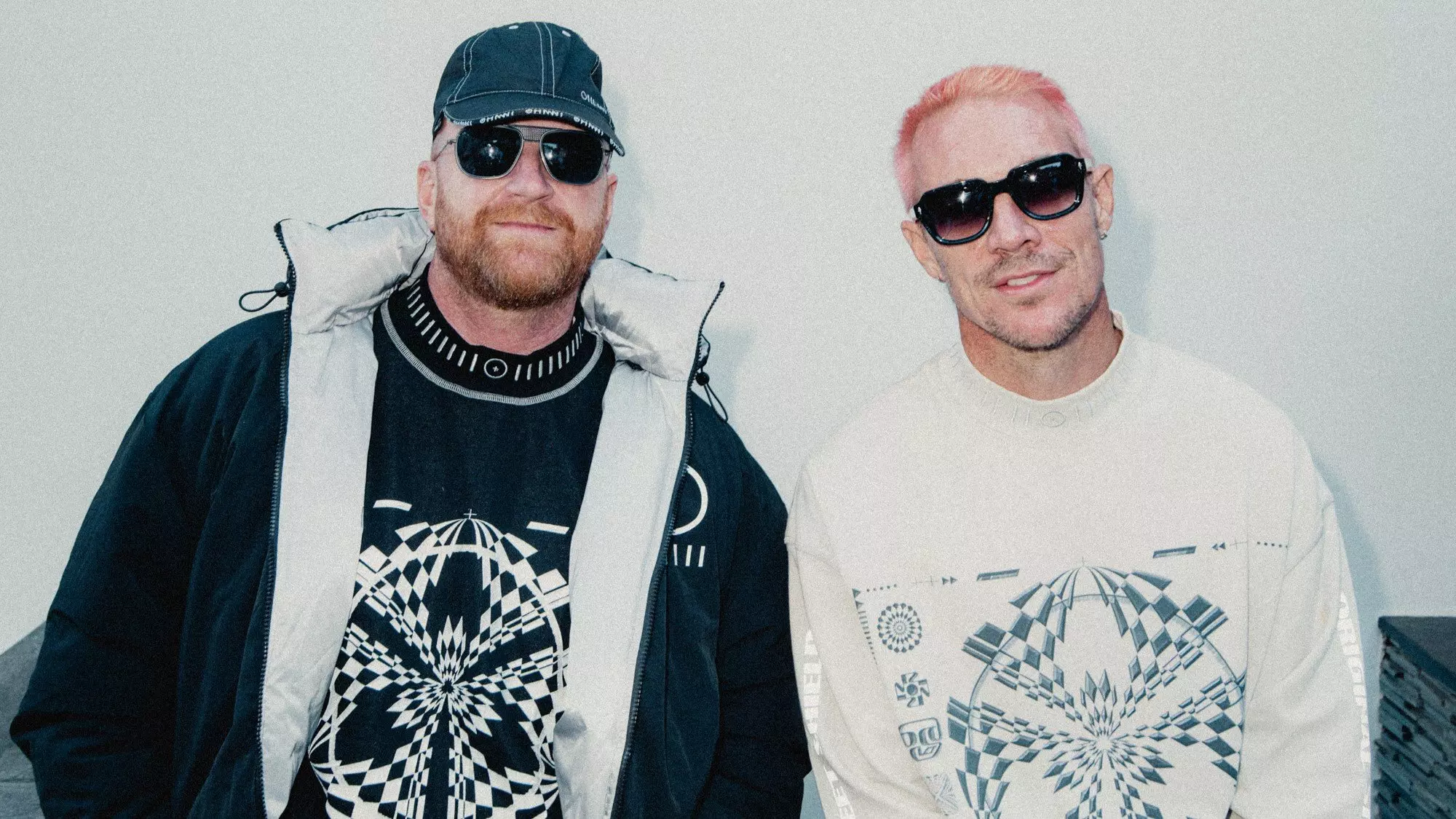
How Major Lazer's 'Guns Don't Kill People…Lazers Do' Brought Dancehall To The Global Dance Floor

YOASOBI Performs "Idol" | Global Spin
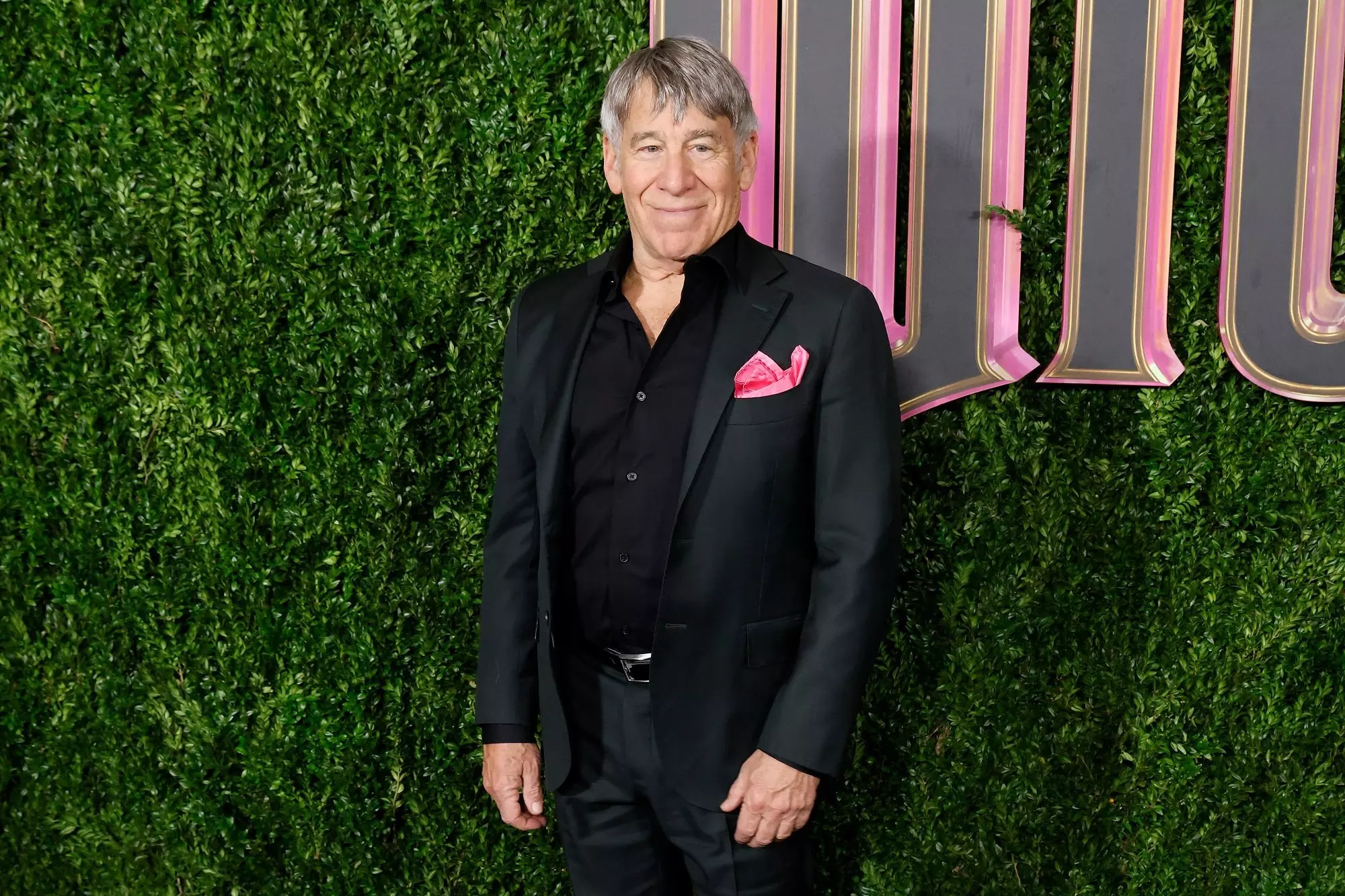
'Wicked' Composer Stephen Schwartz Details His Journey Down The Yellow Brick Road
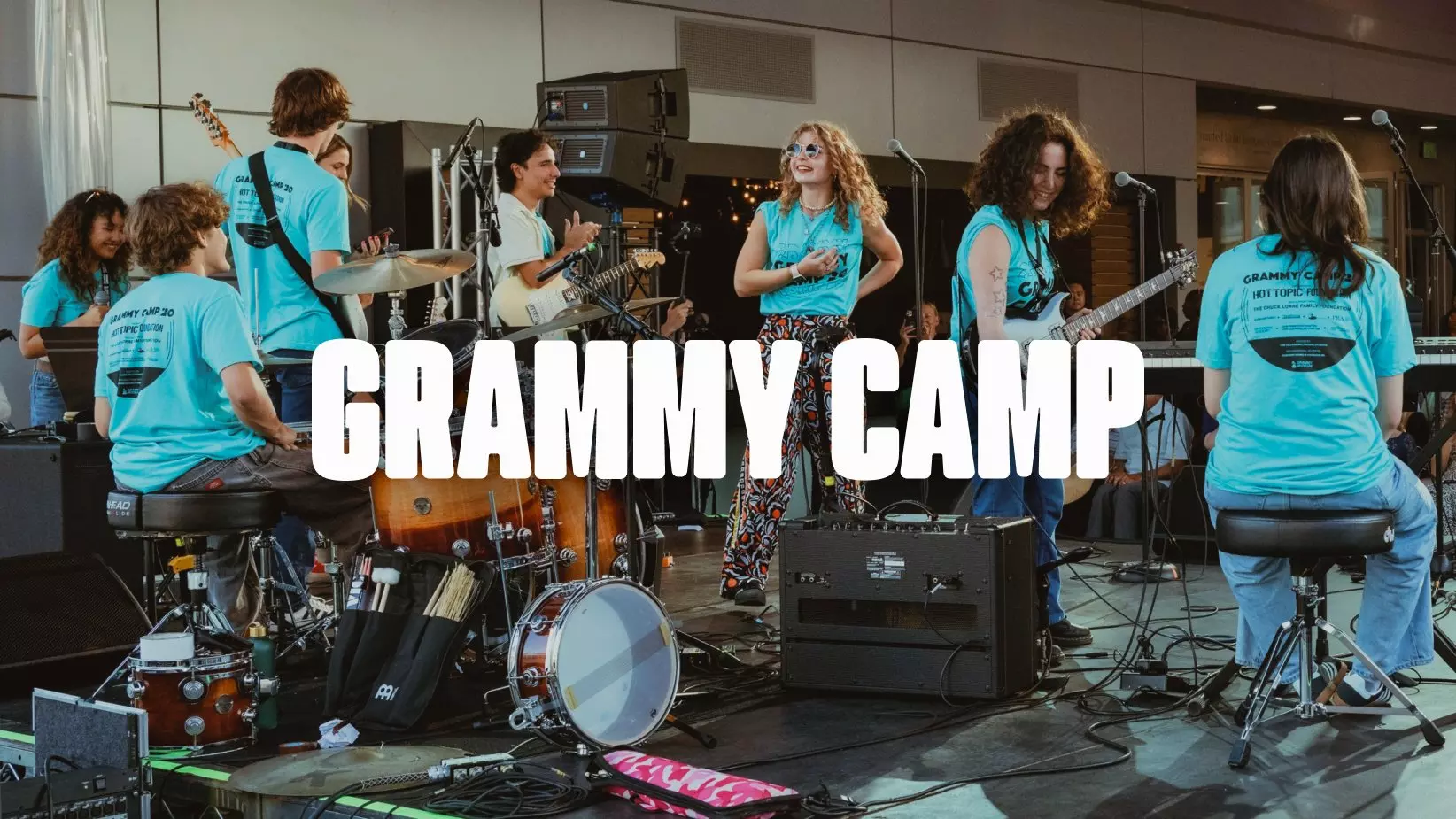
GRAMMY Museum Expands GRAMMY Camp To New York & Miami For Summer 2025
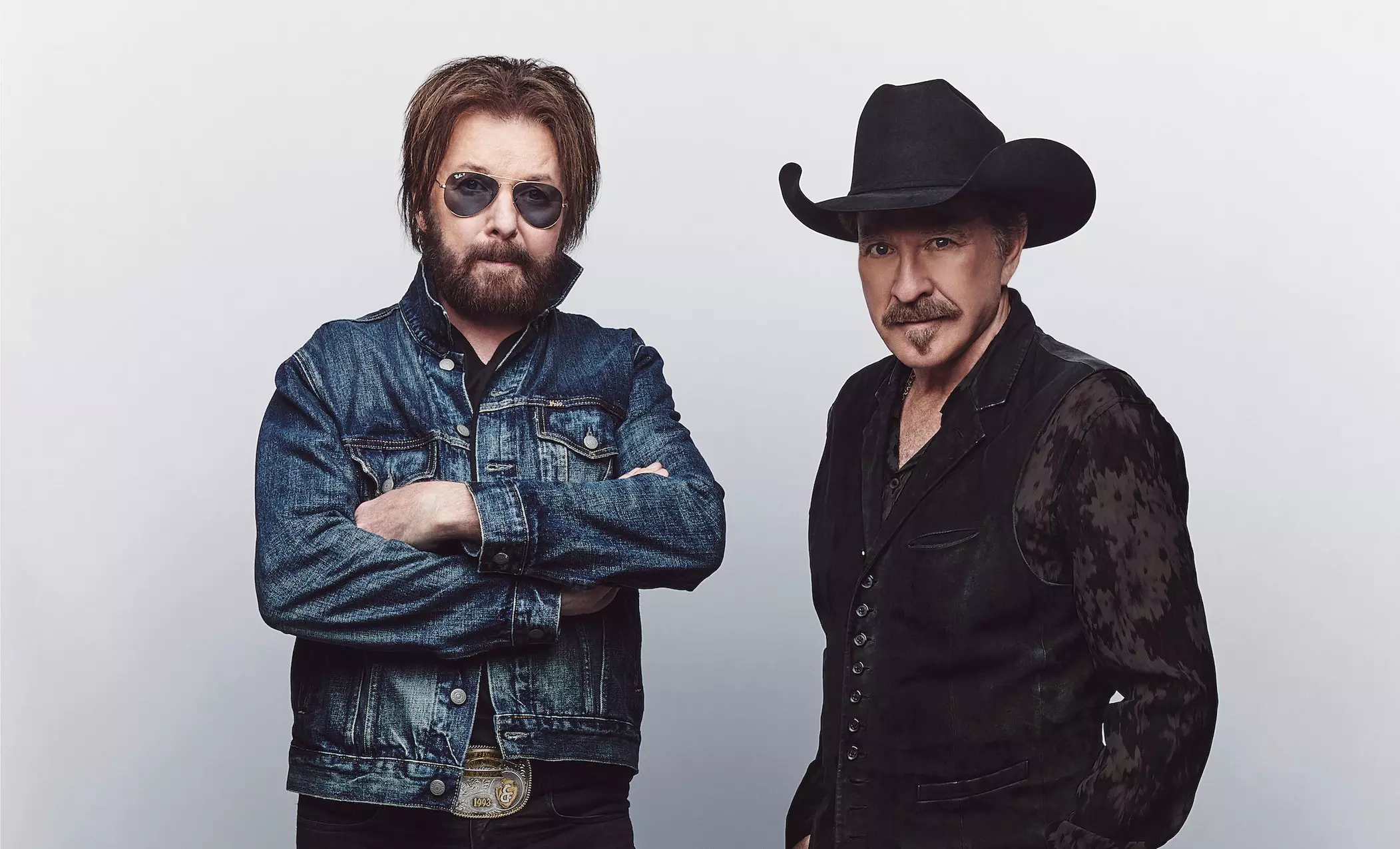
Living Legends: Brooks & Dunn On How 'Reboot II' Is A Continuation Of "Winging It From Day One"
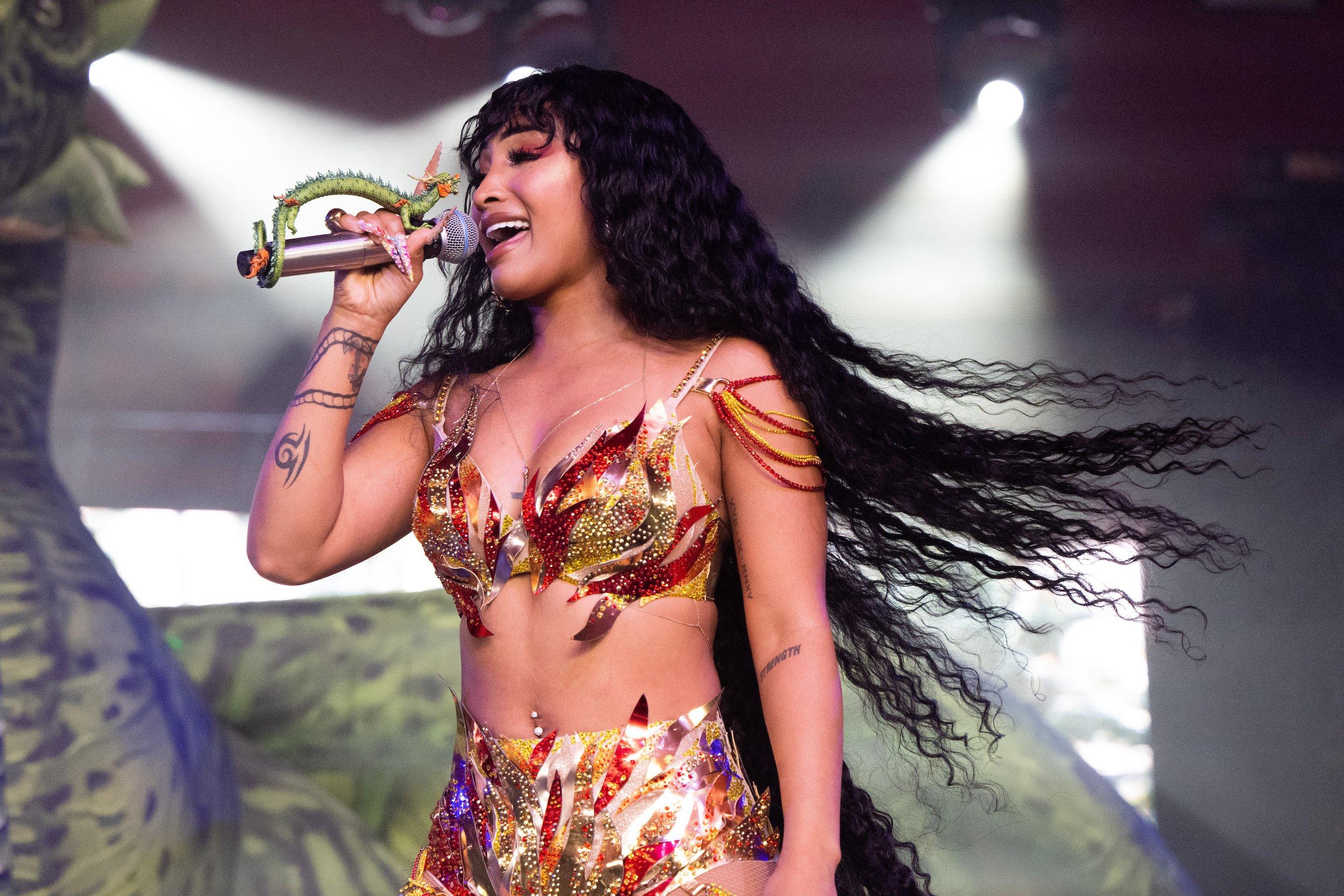
Photo: Scott Dudelson/Getty Images for Coachella
list
8 Can't-Miss Acts At Afro Nation Detroit 2024: Shenseea, Ayra Starr, Kizz Daniel & More
After a successful first year, Afro Nation Detroit returns to Bedrock's Douglass Site on Aug. 17 and 18. Get to know some of performers who are sure to be weekend highlights, from Uncle Waffles to Scorpion Kings.
Since its inception in 2019, Afro Nation has brought together the world's best and brightest entertainers in Afrobeats, amapiano, R&B, and hip-hop to perform on stages across the world. For the second year in a row, the festival takes over Bedrock's Douglass Site in Detroit — promising to continue its tradition of highlighting the best in Black music.
With its unique Detroit location, the festival bridges the gap between African music, global Black music, and the rich musical traditions that came out of Motown. In fact, the festival's site was once home to the first federally funded housing project for Black citizens in the city; Diana Ross and Smokey Robinson were among its residents.
Afro Nation Detroit offers as much history as it does global appeal, as its lineup is filled with buzzy rising stars and beloved veteran acts. Among those on the star-studded roster are Nigerian sensations Omah Lay, Rema and Asake, amapiano stars Kelvin Momo and TxC, and hitmakers Lil Wayne and PartyNextDoor.
Of course, it wouldn't be a Detroit event without native rapper Kash Doll, who performs on Saturday. And she won't be the only Detroiter performing over the weekend: genre-bending soul singer Charity and DJ Donavan Glover will also be repping their city amid sounds from around the globe.
That's just a taste of the exciting performances scheduled to showcase the diversity of Black music in one of its influential cities. Below, get to know eight acts who you won't want to miss at the second edition of Afro Nation Detroit.
Ayra Starr
Sat., Aug. 17 (Lit Stage)
At the age of 22, Ayra Starr is already making history. In February, The Beninese-Nigerian singer was the youngest nominee in the inaugural Best African Music Performance Category at the 2024 GRAMMYs; and in June, her debut album, The Year I Turned 21 helped her become the first female Nigerian artist to debut on the Billboard 200 album chart.
Just before her Afro Nation appearance, Starr added another first to her resume: she became the first Afrobeats singer to be part of Amazon Music's Breakthrough Artist program. The honor aligned with the release of her Amazon Music documentary, Dare to Dream, which chronicles her rise to global fame. There's no doubt that Ayra Starr will offer a showstopping performance that proves why she's such an acclaimed artist to watch.
Uncle Waffles
Sat., Aug. 17 (Piano People Stage)
Often regarded as the "princess of amapiano," Uncle Waffles is one of the genre's most forward-facing talents. In less than five years, the internationally recognized DJ/producer has been listed on TikTok's inaugural Visionary Voices Africa List, been nominated at the BET Awards and MOBO Awards; this year, she became the first amapiano artist to perform at Coachella.
Her talents have also earned Uncle Waffles co-sign from Beyoncé — whose Renaissance World Tour homage to Uncle Waffles' "Tanzania" nearly brought the star to tears — Drake, Ciara, and Missy Elliott. Needless to say, Uncle Waffles is an act that you won't want to miss at AfroNation Detroit.
Read More: 11 Women Pushing Amapiano To Global Heights: Uncle Waffles, Nkosazana Daughter, & More
2woBunnies
Sat., Aug. 17 (Piano People Stage)
Think Daft Punk, but amapiano. Masked South African DJ duo 2woBunnies decided on the concept of anonymity as a way to create intrigue about their unique take on the genre, and let their music do the rest.
Though it has only been two years since their debut, they have done just that, from garnering more than 1 million likes on TikTok to performing sets everywhere from Dubai to Australia. Following first-time performances in major cities like Paris and Toronto, they'll make their Detroit debut next — and you don't want to miss the excitement they'll bring to Afro Nation.
Kizz Daniel
Sat., Aug. 17 (Lit Stage)
Since releasing his breakout single, "Woju," in 2015, Kizz Daniel has been a trailblazer in bringing Afrobeats to the world. And nearly 10 years in, he's continuing to deliver songs that resonate — including a hit remix of "Twe Twe" with fellow Nigerian star Davido.
Kizz Daniel's Afro Nation performance comes on the heels of another fiery remix, as he recently hopped on Nigerian artist Kaestyle's "My Dealer." He'll have plenty of new songs from his own catalog to bring to his set, too, including his latest single, "Double,” and EP TZA. Whether new or old, Kizz Daniel will be ready to give his crowd a lesson in Afrobeats.
Shenseea
Sun., Aug. 18 (Lit Stage)
In May, Shenseea released her sophomore studio album, Never Gets Late Here, which solidified the GRAMMY nominee as one of Jamaica's most promising rising stars. "Hit & Run", the album's single, was warmly received throughout the Caribbean, reaching No. 1 on several charts across Antigua and Barbuda, Turks and Caicos, Bermuda, Barbados, Trinidad and Tobago, and many other countries in the region.
Fittingly, Shenseea first brought Never Gets Late Here to life on stages across the Caribbean, where her onstage energy matched the hyped crowds. She stops by Afro Nation Detroit just after kicking off her Never Gets Late Here North American Tour in Chicago on Aug. 16, so she'll surely be ready to show festgoers why she's so beloved in her home country and beyond.
Amaarae
Sun., Aug. 18 (Lit Stage)
To say Amaarae is in demand would be an understatement. Sabrina Carpenter personally requested the Ghanaian American artist as an opening act for her forthcoming tour; Childish Gambino featured her on his new album, Bando Stone & the New World, and its accompanying tour; and she recently made history as the first Ghanaian artist to perform on NPR's Tiny Desk.
Her latest release, roses are red, tears are blue — A Fountain Baby Extended Play, are equal parts Afropop and alté, a fusion genre that originated in West Africa and combines hip-hop, R&B and Afrobeats. Her sweet, alluring nature signifies her place as one of the most exciting new talents to take over pop. Don't miss the opportunity to see a new global pop girl take center stage.
Scorpion Kings
Sun., Aug. 18 (Piano People Stage)
DJ Maphorisa and Kabza De Small — often referred to as the "godfathers" of amapiano — are the men behind Scorpion Kings. Already established in their own right and respected in South Africa's dance scene, the two have been inextricably linked to the global rise of the genre, and the celebration of South African and African music across the globe.
Last month, the pair performed alongside the who's who in amapiano — Kelvin Momo, Oskido, DJ Tunez, DJ Moma, Aquite, and the Descendants — in Central Park, making history as the first amapiano performance in the famed New York landmark. The duo is sure to keep the party going with their signature flair in Detroit.
DJ Moma
Sun., Aug. 18 (Piano People Stage)
There is a good chance that you know of DJ Moma. In addition to being one of the founding members of Everyday People, the Sudanese American DJ has been playing African music in venues throughout the country and world for over a decade.
His blend of African and Diasporic music, and incorporation of soca, amapiano, and dancehall are a celebration of everything that is global Black music. It is more than music to him, but a way to bring Diasporic musical traditions to the forefront, in an effort to connect and unify People of the African Diaspora across the globe. His mission will make for an Afro Nation Detroit moment that is as meaningful as it is joyful — a combination that's exactly what the fest is all about.
More News About African Music

Stonebwoy On His "Inner Quest" To Showcase Authentic Ghanaian Sound

Mic Monsta Performs "Local Lokito" | Global Spin

Rising Afrobeats Star Oxlade Is Ready To Go Global On 'Oxlade From Africa'

Amapiano's Decade-Long Journey To Global Dominance: The Sound Redefining Club Music Worldwide

10 Artists Essential To Ghanaian Hiplife: Reggie Rockstone, Sarkodie, Mzbel & More
